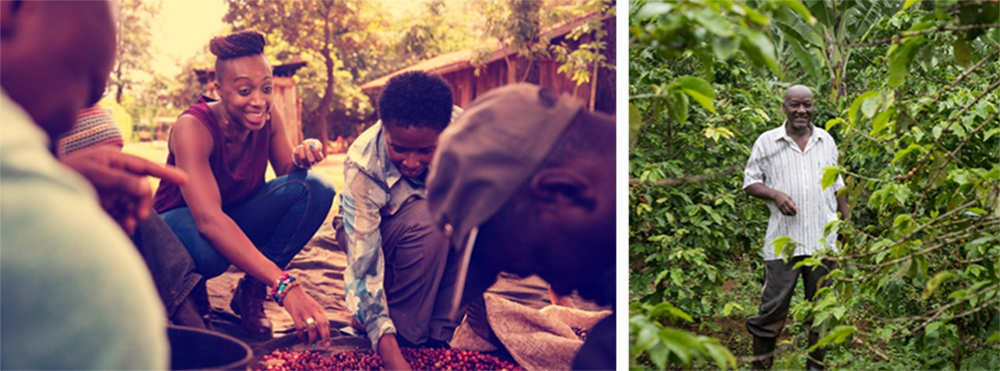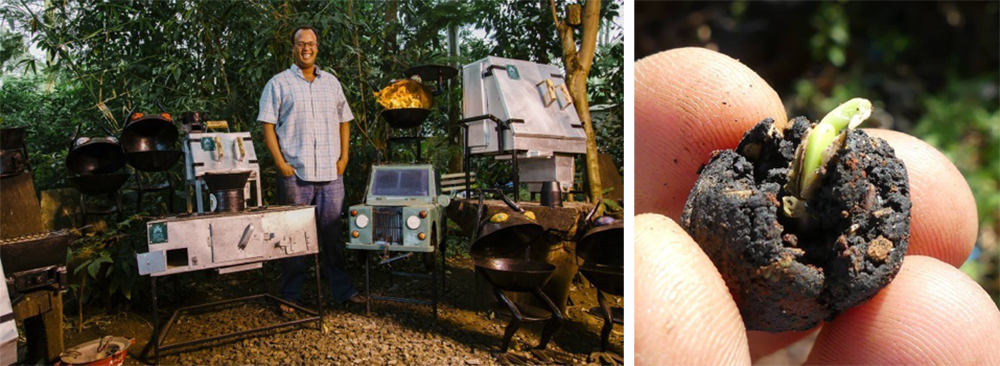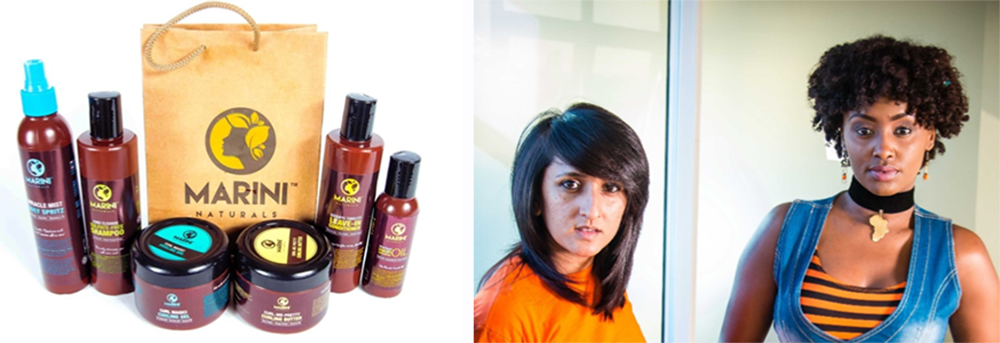Register for a Nairobi Learn-Around! This is your chance to visit two local companies and learn from their key executives.
Important: ONE learn-around is included in the price of your Exploration registration. These activities are open to members and their registered guests. All learn-arounds will take place on 23 September.
Please read these important notes about off-site activities:
- Registered members and their fully registered guests may sign-up for ONE (1) Learn-Around per person. Please be sure to include the full names of both parties when registering.
- All Learn-arounds have limited space and require pre-registration. They are made available on a first-come, first-serve basis and there is no waitlist.
- Please note the travel times when making your selections.
- All off-site activities have limited space and are first come, first served.
- Members and guests that sign-up for the same activity will be assigned to the same group.
- The Learn-Around groups have been arranged based on location, you may not mix and match between groups.
- There are no wait-lists for sold out activities.
For questions about learn-arounds, please contact Rebecca Litwack on the EO Global Events team at [email protected].
Group 1: Artisan Fashion & Mr. Green Africa
Artisan Fashion

Artisan Fashion is a social enterprise connecting Africa’s artists to esteemed luxury brands all over the world. Africa is a continent bursting with local creatives and unique materials. Artisan Fashions’ clients have the opportunity to improve, trace and report on the lives of those involved in the production of the goods they are purchasing. The enterprise engages over 1,000 artisans who make creative designs from beads, brass casting and horn molding. The artisans create beautiful accessories for some of the most successful fashion houses around the world, including Vivienne Westwood, Stella McCartney, sass & bide, Chan Luu and Karen Walker.
Artisan Fashion is the first African production company to combine artisan creativity and social awareness successfully. Seventeen communities across Kenya partner with the company to produce handcrafted artefacts using traditional techniques, local fabrics, leathers and more.
The tour will include meeting the artisans, learning about handcrafted materials and watching the design take shape in real-time.
Mr. Green Africa

Mr. Green Africa is changing the perception of waste and has designed a human-centered business model that illustrates shared value at its best. The company incentivizes marginalised waste pickers and stakeholders by offering premium prices, plus benefits for valuable recyclables.
The incentives create a pathway out of poverty and also positively impacts the environment. Mr. Green Africa processes the recyclable material—into raw material—and feeds it back into the plastic manufacturer’s supply chain. This method enables the company to achieve circular economy goals, including benefits from raw material cost savings.
To help in the environmental clean-up, informal waste pickers, who are not waste management company employees, work as unofficial collectors. Mr. Green Africa sees the informal waste pickers as invisible heroes who have languished at the bottom of the waste hierarchy for too long. Establishing a process through which informal waste pickers can trade directly with Mr. Green Africa brings stronger economic freedom, which improves lives. The company goal and motivating factor is to create a sustainable and scalable business model.
This session includes meeting the waste pickers, visiting the factory, learning about the process and how Mr. Green Africa aims to scale this organization globally. It is an opportunity to learn how social sustainability impacts developing nations.
Group 2: Vava Coffee & Kenya Tech Panel
Vava Coffee

In 2009, after completing her studies in Canada and Europe, Vava Angwenyi returned to her native Kenya, with a focus on changing the African coffee industry. Vava Specialty Coffee is a social enterprise in Nairobi with a subsidiary in the US. The company seeks to affect change through positive social and economic disruption.
Vava’s goal is to create sustainable livelihoods for smallholder farmers and to integrate more women and youth in the supply chain. Her first step was to include more Africans like herself. The coffee farmers in Kenya earn less than 35 percent of the international market value for their coffee. The high-quality specialty coffees produced by local farmers earn them US$250 annually, which equals less than a dollar a day. The low wage is primarily due to lack of market access and limited information about the quality of their coffee.
Vava Specialty Coffee’s direct and fair-trade model brings specialty grade coffees to roasters, consumers and importers who pay fair, premium prices. By linking smallholder coffee farmers to ethically sourced markets, the model not only supports sustainable living but makes it possible to trace the bean back to its root.
This session will include a visit to the roasting factory where you will enjoy a coffee experience unlike any other. There, you will learn about different analysing and roasting techniques, various beans and the impact of environmental factors on flavours.
Kenya Tech

Kenya’s US$1 billion technology hub is home to more than 200 start-ups and established firms such as IBM, Intel and Microsoft. Private investors, government support, and population growth have contributed to the country’s technology boom. Software developers and programmers have developed innovation hubs, incubators and accelerators across the country.
The objective is to build IT solutions to solve the country’s most pressing challenges while growing its opportunities. Kenya’s unique entrepreneurial revolution has had increasing impact across Africa—and in other parts of the world, attracting global recognition for the country.
During the session, you will sit in on a panel discussion with some of the prominent changemakers in the technology space. The information shared will reveal rapid changes occurring in the country. Touchpoints will include the advantages of fiber optic cables, which provides Kenyans with inexpensive, reliable broadband with speeds faster than those in the US. Today, nearly 70 percent of Kenyan adults transfer money to each other via their mobile phones. This ranks as the highest percentage of any country on earth.
Group 3: Cookswell Jikos and Seedballs Kenya & Marini Naturals

Cookswell Jikos
The history of charcoal use in Kenya dates back centuries. Since the founding of the ”Green City in the Sun,” charcoal and firewood have been its primary source of energy. As the Kenyan population grows, the demand for charcoal increases. However, its production by small scale manufacturers continues to threaten natural habitats.
Jiko is a Swahili word for a type of portable stove common in Africa. Cookswell Jikos is a small but growing family-owned business specializing in quality sustainably- sourced charcoal, wood-fuelled stoves, portable convection ovens, BBQ smokers, space heaters and charcoal-making kilns. Mentored and trained by jiko inventor Dr. Maxwell Kinyanjui, all products are handcrafted, designed and made by professional Kenyan artisans. Cookswell Jikos does not employ their artisans, nor do they run their operations like an assembly line. Each artisan is an entrepreneur, on-site, delivering piecework to clients at a price point set by the artist. Payment is made upon receiving the item(s).
Seedballs Kenya
A seedball is simply a seed inside of a ball of charcoal dust mixed with nutritious binders. Seedballs Kenya was created from a combined need to plant more trees and to find a way of disposing of the chardust, a by-product of the charcoal. The biochar coating on the ball helps protect the seed from predators such as birds, rodents, insects and extremes of temperature. Once soaked, the seedball will maintain a moist environment around the seed to encourage germination.
This session includes a visit to Cookswell Headquarters where you will go behind the scenes to meet the artisans, learn about the energy efficient jiko and how it benefits the local population—including the environment. You will also learn about the seedball project and its impact on the landscapes of Kenya.
Marini Naturals

Marini Naturals is Africa’s first quality product line for all-natural hair. Two friends, Michelle Ntalami and Niyati Patel, found a void in the marketplace—and decided to fill it. The idea came to Michelle in 2013 when she chose to live a healthier lifestyle. To signify a new beginning, Michelle cut her hair only to grow it back naturally. Seeking hair care products, she discovered the lack of quality and affordable items specifically for natural hair.
After months spent trying products, Michelle started a natural skin care line. She shared the idea and vision with her family and best friend Niyati. At that point, Marini Naturals was born. Through research, they discovered the main struggle facing Africans wasn’t so much growing long hair, but keeping their hair healthy, soft and manageable. Niyati, being part Indian, brought a wealth of knowledge on how to maintain long, strong, healthy hair by using natural ingredients like herbs. Together, Michelle and Niyati focused on moisture as the differentiator in all of Marini Naturals products. It’s simple: Moisture is the key to strong, healthy and manageable hair.
In 2013, with the help of top laboratories, formulators, cosmetic experts, hairdressers and designers, Marini Naturals was fully realized. A Kenyan-owned company, Marini in Swahili means “naturally beautiful.”
During this session, you will visit the Marini Naturals factory. You will have an opportunity to learn about the creative process, meet the founders Michelle and Niyati and find out more about their journey.


